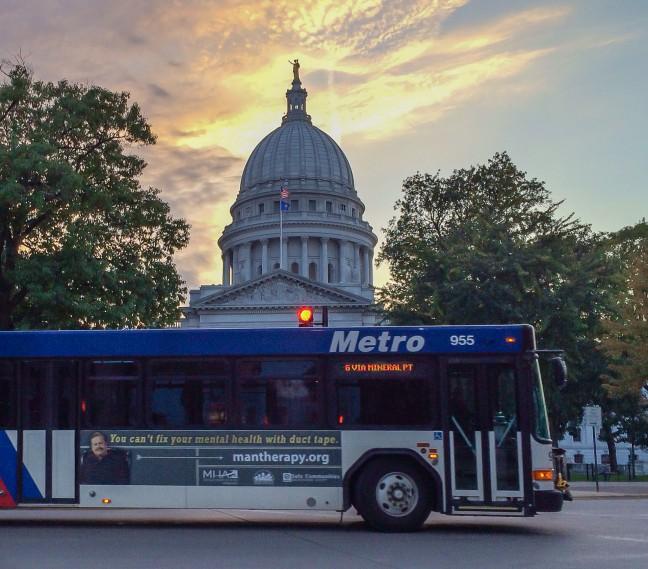The Wisconsin Supreme Court is now further reviewing a longstanding legal case regarding a Madison Metro Transit gun-control policy.
Wisconsin Carry, a non-profit organization that promotes the protection of Second Amendment rights, filed an appeal in January 2015. The appeal challenges a Metro policy that prohibits carrying concealed weapons on Metro buses, Nik Clark, Chairman of Wisconsin Carry-Milwaukee, said.
The Wisconsin Supreme Court intends to receive briefing on the case by March 21 and proceedings will commence thereafter, Diane Fremgen, Clerk of the Supreme Court and the Court of Appeals, said.
Wisconsin Carry argues that Metro Transit’s restriction on concealed weapons violates a Wisconsin preemption statute, which prevents local municipalities from regulating firearm policies, Clark said.
Clark said while Wisconsin Carry is arguing against the legality of the Metro gun-control policy, the organization also asserts that Metro’s anti-concealed carry policy is a civil rights issue.
“It is also a civil rights issue because it disenfranchises people of lower income who don’t own cars and have to take public transportation,” Clark said. “I think that it exposes the hypocrisy of anti-gun politicians who claim to be in favor of low income folks when they are not allowed to carry firearms on buses.”
Michael May, Madison City Attorney, said the city remains firmly against guns or any type of weapon to be allowed on Metro buses.
Howard Schweber, University of Wisconsin associate professor of political science and legal studies, said the safety implications of carrying a firearm in a public place, including a city bus, provide an innate argument for anti-concealed carry policy.
“The counterargument [to allowing concealed weapons on buses] is simply carrying a gun concealed in public and carrying a gun in a specific location like on a bus,” Schweber said. “Buses often get crowded, tempers often get short; there can be a concern that what, nowadays, is a shoving match could turn into a shooting situation.”
Schweber said analyzing the intent of Metro’s anti-concealed carry policy and determining the appropriate level of regulation under the Second Amendment both fall under somewhat “uncharted territory” in the judicial sphere.
May said there has not yet been any set of court precedents comparable to the case between Wisconsin Carry and Metro Transit, as controversies over the Second Amendment are still “very new.”


